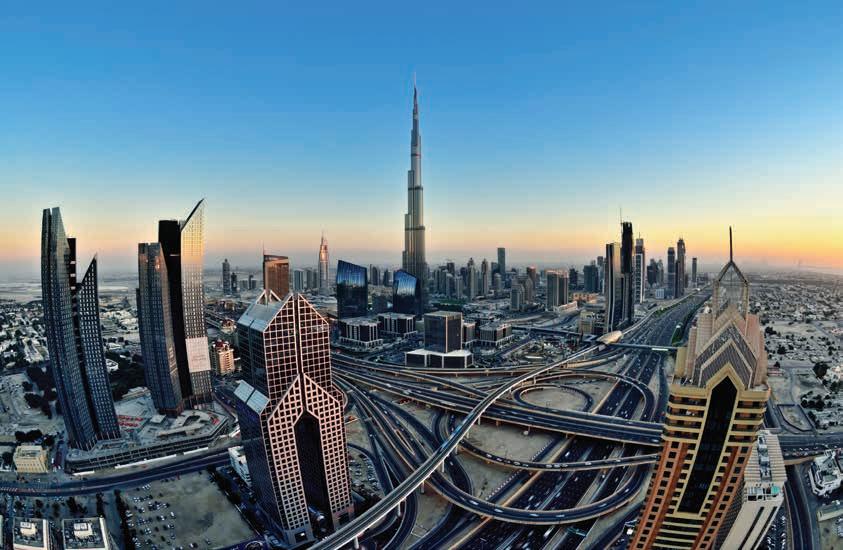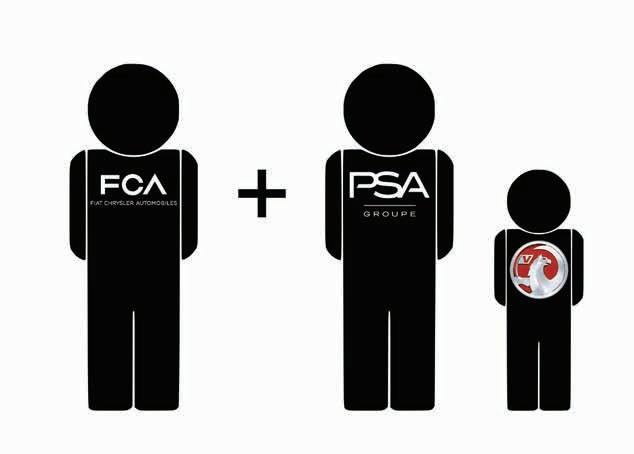
11 minute read
World Bank forecast
World Bank’s 2020 report Tepid growth forecast in
Global economies struggling to find traction as tensions and slowdowns take a toll on expansion
Advertisement
THE WORLD Bank forecasts a slight increase in global economic growth for 2020.
But the operative word is “slight”: the bank’s prediction is for expansion of 2.5 percent, just 0.1 percent up on a weary and worrisome 2019.
The US is expected to face another uninspiring year, while some emerging countries and economies that struggled through last year could be in for a more prosperous time.
Some optimists are still hopeful of good times to come, but 2019 dragged its heels more than any other year since the 2008 financial crisis. If 2020 follows suit, experts expect a tough slog. India is anticipating something of a resurgence after a poor 2019, and Brazil and Mexico are hoping for similar progress — but Argentina's already tight economy is predicted to contract still further.
MISSILE ATTACK The bank warns of renewed tensions in the Middle East in general, although its report was compiled before the recent missile attack and the US drone assassination of Iranian general Qassem Soleimani. Factors such as political unrest and conflict could affect ongoing economic outcomes.
The possibility of rising oil prices was taken into account in the World Bank report. Unrest in the Middle East has previously led to a hike in oil, and economic reverberations around the world. Trade tensions between the US and China — despite recent positive progress — could resurface, the report authors note. There is also concern about mounting debt in developing economies, which has grown faster than anticipated.
In general, global borrowing is seen as a problem.
“Low global interest rates provide only a precarious protection against financial crises,” Ayhan Kose, director of the World Bank’s Prospects Group, wrote in the report.

Mark Carney
10 PEOPLE


Princely sum of $1 a year
for his challenging role…
MARK Carney, governor of the Bank of England, has been appointed UN Special Envoy for Climate Action and Finance.
Carney will take up the post in February 2020. The announcement was made shortly before the COP25 summit in Madrid, the UN's annual climate change conference.
He said the conference provided a platform to bring the risks from climate change, and the opportunities from the transition to a net-zero economy, “into the heart of financial decision-making”.
Investing for a “net-zero” world “must go mainstream”, he said. Carney expressed his honour at taking up the role, and good on him, because honour is pretty much all he gets: it’s a pro bono position for which he’ll be paid the princely sum of $1 a year. He will also step down as governor of the bank.
The landmark Paris Agreement sets a framework to combat climate change and limit global warming to below two degrees Celsius; it was signed by 195 countries in Paris in December 2015.
The post was previously held by Michael Bloomberg, billionaire and former mayor of New York. Carney’s job is to mobilise private finance for climate action, with the goal of a net-zero carbon economy for the 26th COP meeting, to be held in Glasgow in November 2020.
The task facing him includes building new frameworks for financial reporting and risk management, and making climate change a priority in private financial decision-making.
Get on the road...

...with BV motoring
on new meaning Plug-and-play takes with feisty Ego Evo

ITALIAN electric bike firm Energica Motor Company is the sole manufacturer for the FIM Enel MotoE electric motorcycle racing championship.
Its supersport model is the Evo, and 2016 Formula 1 world champion Nico Rosberg was recently spotted riding the bike ahead of its unveiling at the 2019 EICMA show.
The second-gen Ego gets a new battery pack, expected to be a lithium-ion set-up with better performance, greater range and less weight than the current 13.4kWh lithium-polymer pack.
In Eco power-saving mode, the Ego is touted to have a range of around 190km. With 107kW and 200Nm of continuous torque on tap, Eco will probably be more than enough for Ego maniacs.
The updated machine also
Touted to
have a range
of 190km with
107kW and
200Nm of
torque
receives better electronics, including ride-by-wire throttle, four riding modes and regenerative braking maps, six levels of traction control and Bosch dual-channel ABS with rear-wheel mitigation system.
Aesthetically, the motorcycle gets some modest updates.
Rosberg tries two e-wheels
The fairing has been slightly redesigned, presumably to incorporate the updated battery pack.
Mechanical components, including adjustable Marzocchi forks and a Bitubo monoshock rear-end with adjustable rebound and preload, remain unchanged. And for good reason: it's topdrawer stuff.
An international launch for the Evo is expected soon. With the c-vehicle market hotting-up, these are exciting times.

merges with Fiat Chrysler Unions unsettled as Vauxhall
Bid to cut costs and fund research into the EV sector creates world’s fourth-largest car firm
FIAT Chrysler is merging with Vauxhall parent PSA, making it the world's fourth-largest car company.
The merger is understood to be “50-50”, and should provide cost savings for both entities — but there are fears for the future of jobs at Vauxhall in the event of restructuring.
Vauxhall UK employs 3,000 people, and unions want discussions with the French PSA, which owns Peugeot and Citroen, to clarify the situation.
No factory closures are planned, the company says, but unions have called the move “unsettling”. The merger aims to cut costs and bankroll research and investment into the EV sector. Major cost cutting would require plant closures and significant job cuts, according to union representatives.
PREDICTED SALES Fiat Chrysler is ItalianAmerican owned, with brands including Alfa Romeo, Jeep and Maserati.
The combined Fiat ChryslerPSA entity will be worth about £39.9bn, with predicted annual sales of almost nine million vehicles based on previous performances.
French Finance Minister Bruno Le Maire welcomed the deal.
The minister said the deal now had sufficient financial heft to encourage investment in cleaner technologies.
The combined group formed by the merger will be based in the Netherlands, with a board comprising members representing Peugeot and FCA.
To clarify the break-down of ownership in more detail, Italian Exor will have the largest stake in the new entity.
Exor's majority stake is followed by the Peugeot family, Dongfeng Motor (China) and the French state.

BY RICHARD THOMAS THE most-clicked recent news story in the world of electric vehicles has been the launch of the Tesla Cybertruck.
In itself that wouldn’t be a big story, but this one attracted a lot of attention. It wasn’t the vehicle’s angular looks that got the attention, is was that stuff-up with the window-smashing spectacle. Here we are anyway, still writing about it.
Tesla claims to have received 200,000 orders within seven days of the disastrous launch. Like many other utilities recently launched, the look is more car than truck.
The new Mercedes-Benz EQC falls into the small SUV/Crossover category, with a range of 450km or so. The 0 – 100kmh time is an impressive for a family car: 5.1 seconds.
In Europe, the basic model
Tesla’s tragic Cybertruck launch: off to a smashing start...?
without extras will set you back €77,425.
If the Benz is a little pedestrian for you, there are other options. British sports car company Lotus has just announced that its e-hypercar, the Evija, has entered the construction phase. With a top speed of over 200mph (on the Autobahn, of course), its 250-mile range would see you heading for the charging station every hour or so.
Here on the BV motoring desk we don’t see that as too much of a problem. Although maybe a test drive is needed to be able to say for sure…
On the subject of range, or anxiety thereof, a network of charging stations launched in April 2018 by Ionity, a joint venture of BMW, Daimler, Ford and Volkswagen Group (which includes Audi and Porsche) has been spreading. Ionity’s goal is to build highpower charging stations along all the major highways of Europe. It currently has live stations across western, central and eastern Europe, from Ireland to Hungary, Finland to Spain — and more are under construction. And to make budgeting easier, each charging session has an easily remembered fee in your local currency. In the

Cobalt mine at Bou-Azzer in Morocco; there are others in DRC. It can be a messy process.

euro zone you pay €8, in the UK £8, and in Scandinavia Norway, Sweden or Demark a round 80 Crowns.
GREEN JUICE AGAIN THE main driver for development and uptake of electric vehicles is concern for the environment. But the news isn't all positive, and care must still be taken to minimise impact.
Back in April, a German thinktank showed that a Tesla Model 3 emitted slightly more CO2 per km than the diesel-powered Mercedes-Benz C220d. Oh dear. Since shunning nuclear power, most electricity in Germany is generated from coal. Production of lithium-ion (Li-ion) batteries has a non-zero carbon footprint — depending on the method used to generate the electricity (see our article How green is your juice in BV Spring 2019). The lithium is extracted from the earth, a finite resource. Most lithium reserves are under salt flats high in the Andes in South America. The residents of these areas of Argentina and Bolivia don’t benefit from the extraction process, which also requires large amounts of water in dry regions.
Another much sought-after ingredient for Li-ion batteries is cobalt. This element is abundant in small rocks found on the surface of the seabed around the world, but harvesting it should be done without damage to the seabed, its flora or its fauna. Research is currently being undertaken by the European Union on extraction in the Mediterranean.
Cobalt is currently mined on land, with almost 75 percent of the world’s supply coming from the Democratic Republic of the Congo (DRC). DRC has a bad track record on environmental issues, working conditions and child labour, and manufacturers are looking to reduce their social and environmental impact.
Tesla and BMW will be looking to source it from other countries, such as Australia and Morocco. However, with the quantities required globally, it will not be possible to avoid or using DRC as a source. Volvo battery suppliers use blockchain technology to trace cobalt to only socially and environmentally responsible mines.
UP, UP AND AWAY ON A lighter note, let’s mention advances in the field of electric flight. Many advances in combustion engines came via the racing scene, particularly F1. It is hoped that Formula E will do the same for electric cars and planes. To push the evolution of electric flight, the world’s first electric plane-racing series will be launched in 2020, the brainchild of Airbus. A prototype of a racing plane was unveiled at the recent Dubai Air Show, developed from a craft which won podium places in Formula Air racing in Europe in the ‘80s and ‘90s.
The plane has been converted to fully electric by a Yorkshirebased company. It can hit 300mph, with 100kg of Li-ion batteries providing a full-speed flight duration of five minutes, with reserve capacity of 10 minutes at reduced power — presumably to get to the start/finish line.
‘emissions laws and Brexit' UK car market's fears for
NEW UK car registrations in 2019 fell to their lowest level in six years.
A total of 2.31m new cars were registered in 2019, down almost 2.5 percent on 2018.
This is the nadir since 2013, according to the Society of Motor Manufacturers and Traders (SMMT) — and the third consecutive year of decline.
Weak consumer confidence and confusion over emissions legislation are listed as major factors in the automotive industry's misery. Another factor in the decline is the collapse of the diesel-powered car market, which has gone into virtual freefall.
It showed a drop of more than 20 percent over 2018 sales — in a sector which once accounted for almost half of new vehicle sales.
But SMMT CEO Mike Hawes
Potential
buyers
‘confused,
cautious’

pegged Brexit as the biggest problem for the sector, and described the overall situation as “a perfect storm” for the industry. The SMMT says uncertainty over future emissions laws and restrictions has left potential buyers confused and cautious. The organisation adds that stricter air quality rules will mean a surge in the development of electric and
Mike Hawes, SMMT CEO

hybrid cars. New light commercial vehicle registrations returned to growth in December after three months of decline, an uptick of 7.8 percent in the month.
This was the result of an easing of regulatory changes and attractive offers on new models, the SMMT says — but pickups nonetheless experienced a fall in demand.
Successful traders don't follow the pack, they time their trades perfectly and possess strong trading psychology.







Do you have w hat it takes?
FxPro.co.uk
RiskWarning: Trading CFDs involves significantriskofloss.
FxPro UKLimited is authorised and regulated bythe Financial ConductAuthority(registration no. 509956).
FxPro Financial Services Limited is authorised and regulated bythe Cyprus Securities and Exchange Commission (licence no. 078/07) and authorised bythe Financial Services Board (‘FSB’) (authorisation no. 45052)











